
Late preparations for the next elections by the “reformists”
The editorial of Arman Melli explains why the strategy of Iranian “reformists” of turning to the Iranian people and inviting them to take part in the next parliamentary elections is doomed to fail.
The “reformists” have started very late in their preparations for the upcoming parliamentary elections, and whatever issue and problem they raise now can be interpreted as them encouraging people to vote. The “reformists” should have started to think about the people much earlier, not just when there are only a few months left to the parliamentary elections.
They should have accepted responsibility for the poor performance of the government and the “reformist” Omid Faction in parliament much earlier when it was gradually frustrating people and making them regretful of their support during the last elections; However, no such thing has happened.
Now the “reformists’” approach of calling people to take part in the elections and to support them will not work. They didn’t accept any responsibility with regard to Mr. Rouhani’s and the Omid Faction’s performance. They shouldn’t think that the people are their puppets and that they should take part in the elections.
People do not trust the “reformists” any longer, and there is a decline in social capital. If they are going to regain this social capital and earn the people’s trust, they should have started much earlier in preparing for the elections.
The “reformists’” current approach will not be fruitful, and the people will probably tell them: why have you remained silent since 2017 [when Rouhani was elected as president] and why have you not reacted to the poor performance of the government and the Omid Faction?
Arman Melli
Parliament’s role in the formation of corruption centers
The editorial of Setareh Sobh explains that the Iranian parliament, by not fulfilling its overseeing duty, plays a significant role in the formation of corruption centers in the country.
The head of the judiciary has recently said that to fight corruption, its centers must be targeted. The centers of corruption are within managerial institutions. One such institution is in charge of qualifying individuals to be members of parliament.
If we look at the 7th parliament, we see that those who have been qualified by this overseeing institution have degraded the status of the Iranian parliament, which is why they haven’t been able to fulfill their legislative role or oversee the country’s affairs.
To identify the centers of corruption, one must target the sources of corruption, one of which is the incompetent parliament. According to Article 84 of the Iranian constitution, the parliament can investigate and probe into all the country’s affairs.
The outcomes of these investigations and probes must be read in parliament and then referred to the judiciary so that competent courts are formed to destroy the centers of corruption.
In the 7th parliamentary elections, roughly 3,500 “reformist” candidates intended to enter parliament but were disqualified. 85 of these “reformists” were from the 6th parliament and were political figures with brilliant records.
As an outcome of such a decision, the parliament has no powers in dealing with and investigating important institutions in the country now. The lawmakers who are qualified to enter parliament act in accordance with their personal interests, turning parliament — which plays a role in countering corruption — into a useless body.
It is the duty of a strong parliament to oversee the executive and judicial branches.
Setareh Sobh
A mirage called national dialogue!
The editorial of Arman Melli focuses on the useless nature of national dialogue proposed by Iranian “reformists”, as it is devoid of any real content.
During the past few months, everybody has expressed his own view about the maximum level of voter participation in the next elections, as well as the need for unity, and national solidarity. Meanwhile, when we get closer to the time of the elections, we are used to moderate political currents talking about national dialogue, so that they can mobilize people to vote as well as making them hopeful.
About a month ago, some “reformists” had a meeting with the Interior Minister, and after that, they expressed their willingness to meet with members of the Guardian Council. The “reformist” lawmaker Mohammad Reza Aref has proposed a national dialogue, expressing hope that political currents would come to an agreement over a national dialogue before the elections.
A national dialogue cannot be achieved that easily, because the main issue in the elections is not for Aref to sit down with some religious scholars in the city of Qom or for the Interior Minister to talk with some hardline “principlists”. In these meetings, everyone talks of the need for solidarity, and unity, as well as the need for unanimity against the enemy.
Such general remarks are welcomed and endorsed by the “hardliners” because it means that the “reformists” will take part in the elections anyway. Meanwhile, the main problem is voter demands and fear among “reformists” that their support base will lose hope because of their calls for national dialogue rather than addressing voter demands.
Aref must pay more attention to the facts. If they talk of national unity and dialogue, they must try to respond to the demands of the 24 million people who took part in the previous election. No matter how much the “reformists” use the rhetoric of national dialogue and unity, it will have no impact on those who feel dissatisfied, without responding to the demands of their social base.
Arman Melli
Iran’s economy and the challenge of attracting foreign investment
The editorial of Tejarat goes over why a lack of foreign investment in Iran is going to create problems for the country’s economy in the upcoming years.
Statistics show that during economic disorder and sudden leaps in prices, the level of investment declines. When there is an increase in disorder in asset markets, investors consider reallocating their resources to places where they are immune from the risk of price hikes.
In other words, if there is no bright, clear future with regard to investment in a sector, an investor will pursue benefits and productivity in the short term. On the other hand, investment becomes meaningful in stable countries (like Iran’s neighbors).
Currently, statistics show that during the past years, a considerable amount of Iranian investment has been directed towards countries such as Georgia, Turkey, and Azerbaijan. The main reason for this capital outflow is immigration and stability found in large-scale economies. There is no doubt that in the upcoming years, this issue will become one of the main challenges facing Iran.
In industrial sectors, investment needs time to come to fruition, but its impact will be more sustainable than in other sectors like the service sector. On the other hand, investment will create growth, which, in the end, will create revenue for the economy.
Some experts believe that Iran’s strategy of economic management must fundamentally change, but the truth is that we don’t have any strategy that is intelligently formed. What has happened in Iran during the past decades is basically due to old, and deficient systems that still exist in our economy.
Under current circumstances, given the uncertainties that exist in Iran’s economy, it can be expected that the level of investment in the economy will decrease. Therefore, officials must identify and remove the factors that have decreased investment in Iran’s economy.
As such, one of the main duties of the Iranian establishment and government must be to reform the conditions of investment in Iran. Iranian policymakers must admit that injecting liquidity is not the solution for increasing investment in Iran.
Tejarat

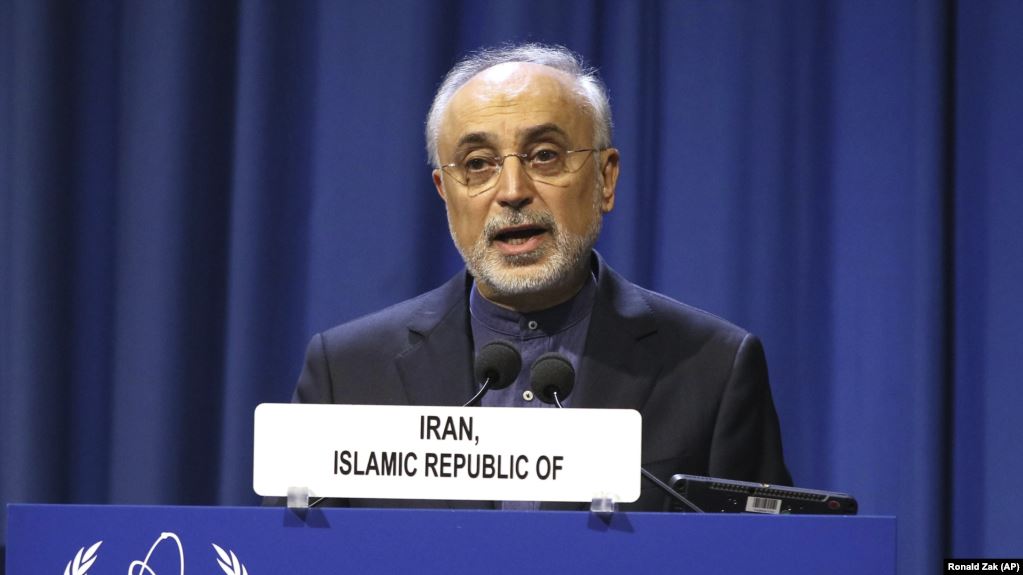
Salehi: Iran to unveil a chain consisting of 30 IR-6 centrifuges in a couple of weeks
Ali Akbar Salehi, Head of Iran’s Atomic Energy Organization announced that a chain consisting of 30 IR-6 centrifuges would be unveiled in the next couple of weeks.
According to the nuclear deal between Iran and P5+1 in 2015, Iran committed not to use more than 30 IR-6 advanced centrifuges. This prohibition continues until 2023.
In an interview with Iran’s state-run TV, Salehi emphasized that the rate of 3.5% enriched uranium has greatly increased, reaching 5 to 6 kilograms per day, “which means that we have gone back to the period before signing the nuclear deal”. He also announced that the second part of Arak’s heavy water will be launched in the next two weeks.
Last year, the United States pulled out of the nuclear deal and reinstated its unilateral sanctions. The United States has called for a more comprehensive deal to include Iran’s regional activities, in addition to its nuclear program.
Following the US extensive sanctions, Tehran faced difficulties in selling its oil. Iran had earlier warned European signatories of the nuclear deal that if it doesn’t gain the economic benefits of the nuclear deal, it will reduce its commitments in the deal.
Previously, IAEA had issued a statement saying that Iran has installed – or is installing – 32 IR-4 centrifuges, one IR-5, and 30 IR-6 centrifuges.
The Iranian Supreme Leader Ali Khamenei has stressed that Tehran will continue to seriously reduce its obligations in the nuclear deal.
Iran’s deadline (November 6) for taking its fourth step in reducing its nuclear commitments is quickly approaching.
Radio Farda
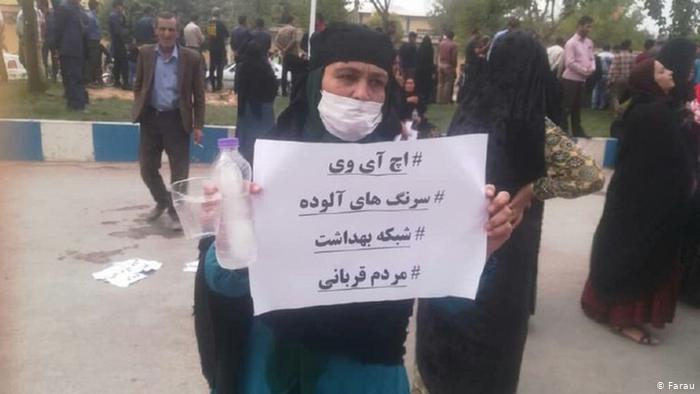
Transmission of HIV in Lordegan; security confrontation and contradictory statistics
Following the fact that a number of people from Chenar Mahmoudi village in Chaharmahal and Bakhtiari province were infected with the HIV virus, a number of protesters gathered in front of the government’s centers in the city of Lordegan and clashed with law enforcement and security agencies.
Images released on social media showed protesters in Lordegan throwing stones at the building of the Health Organization, and they also set fire to the office of the Friday Prayer leader. In these images, security forces were seen as standing in front of government buildings, while shootings could be heard.
Chenar Mahmoudi’s residents say that a number of people from this village have contracted the HIV virus due to using polluted syringes. They believe that the cause of HIV transmission has been polluted syringes used to test people for blood sugar in this village.
The governor of Chaharmahal and Bakhtiari province blamed the protests on “counter revolutionaries”.
Meanwhile, the Iranian Health Minister Saeed Namaki, in a letter to the Justice Minister, has said that polluted syringes have not transmitted the HIV virus while blaming addicts and sexual relations with HIV-positive people as the main cause.
Opposition figures to the Islamic Republic have reacted to the incidents in Chaharmahal and Bakhtiari. Reza Pahlavi, in a tweet, accused the Islamic Republic of disrespecting the people of Chenar Mahmoudi village and covering up the issue.
Meanwhile, contradictory numbers have been announced in this regard. The head of the HIV research Center in Iran said that the number of HIV-positive people in Chenar Mahmoudi is 28, while the governor of Chaharmahal and Bakhtiari province said 65 people have been infected with HIV. Earlier, this number was said to be between 26 to 200 people.
According to Massoud Mardani, a member of the AIDS committee in Iran, 80,000 people are estimated to suffer from HIV, but so far, about 38,000 people have been identified.
BBC Persian
Deutche Welle
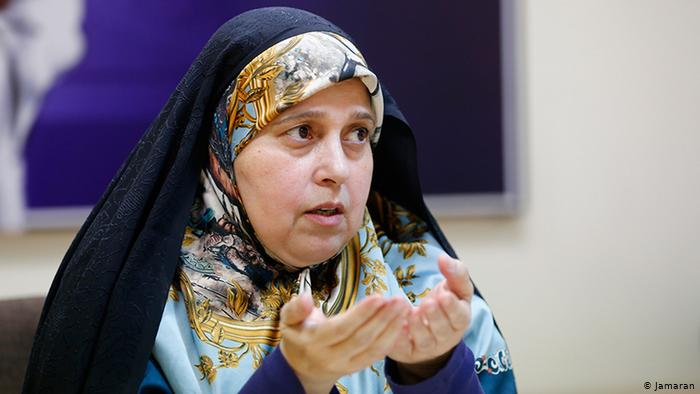
Lawmaker: Corruption threatens the Islamic Republic
The Tehran MP Parvaneh Salahshour has criticized ignoring the roots of corruption, calling it a threat against the Islamic Republic. According to Salahshour, if different groups of people cannot express their criticisms, “the slogan of fighting corruption will be nothing but deception”.
Salahshour called for finding the origins of economic corruption, saying that “we must know that economic corruption is rooted in other circumstances which, if ignored, will be the origins of economic corruption”.
She considers political corruption as the origin of economic corruption, saying that political corruption means a lack of political, legal, cultural and economic equality for all citizens.
Salahshour said that a lack of equal rights for women, and a lack of freedom to hold protests, as well as the media and lawmakers not being permitted to criticize officials and institutions – are all manifestations of political corruption.
The Tehran MP called for a deeper understanding of overt and covert dimensions of corruption, saying that “America and other external enemies cannot be a threat against the establishment; it is corruption that is threatening the Islamic Republic, while the external enemies can use these domestic issues to jeopardize the establishment [of the Islamic Republic]”.
Salahshour, who is a member of “reformist” Omid [Hope] Faction in the Iranian parliament, stressed that corruption is destroying people’s trust, saying, “If reporters, academics, workers, teachers, and I — as a lawmaker — cannot express our criticisms, then the slogan of fighting corruption will be nothing but deception”.
Many political figures and high-ranking officials have criticized widespread corruption and confirmed the existence of systematic corruption in the country; in which entities and institutions in charge of fighting corruption are corrupt themselves.
Earlier, some lawmakers talked of corruption in all ministries, while the Iranian First Vice President Eshaq Jahangiri has said that corruption in Iran has reached the highest-ranking officials of the country.
Many analysts believe that with the existence of unaccountable institutions in Iran such as those that are working directly under the supreme leader’s office, fighting corruption cannot meaningfully take place.
Deutche Welle
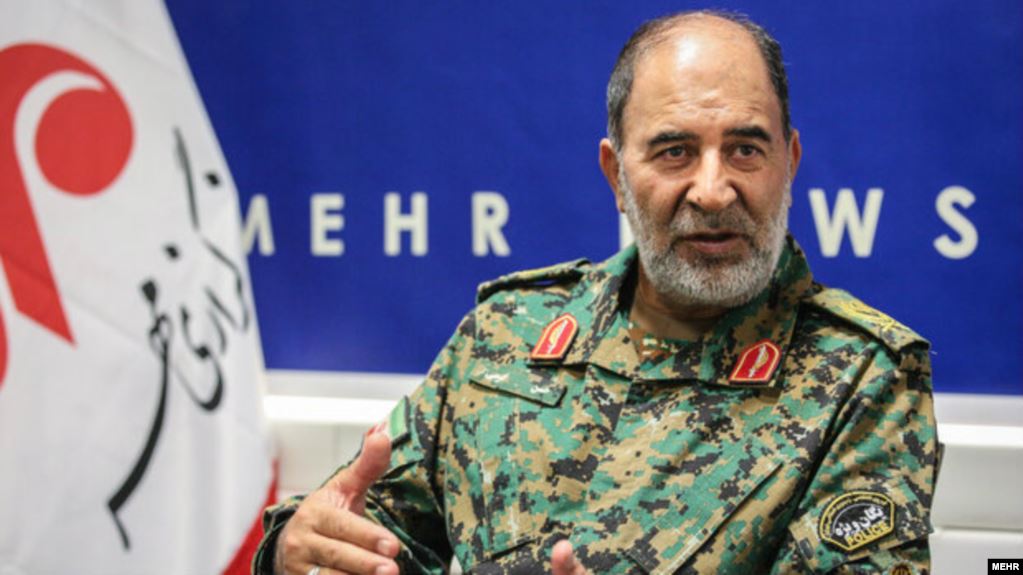
Thousands of Iran’s anti-riot forces deployed in the Arabaeen Ceremony in Iraq
Hassan Karami, Special Units’ Commander of Iran’s law enforcement agencies, said about 11,000 forces of this unit will be present in the Arbaeen Ceremony in Iran and Iraq.
According to Karami, 7,500 forces of the Special Unit will be directly involved in the Arbaeen Ceremony in the form of 24 battalions, while 4500 will be on alert. He added that 30,000 police officers, too, will be present in this ceremony as well.
Karami said the Special Unit is in charge of the most difficult part of controlling “the pilgrims”, adding, “We will have a strong intelligence task, and we will have plainclothed men among the crowd”.
The Special Unit of Iran’s law enforcement agencies is in charge of confronting popular protests. These forces were present in the Arbaeen Ceremonies in previous years.
However, this year, these forces are present in the Arbaeen Ceremony while some Iraqi protesters have accused the Islamic Republic of being involved in quashing the Iraqi protests.
Radio Farda
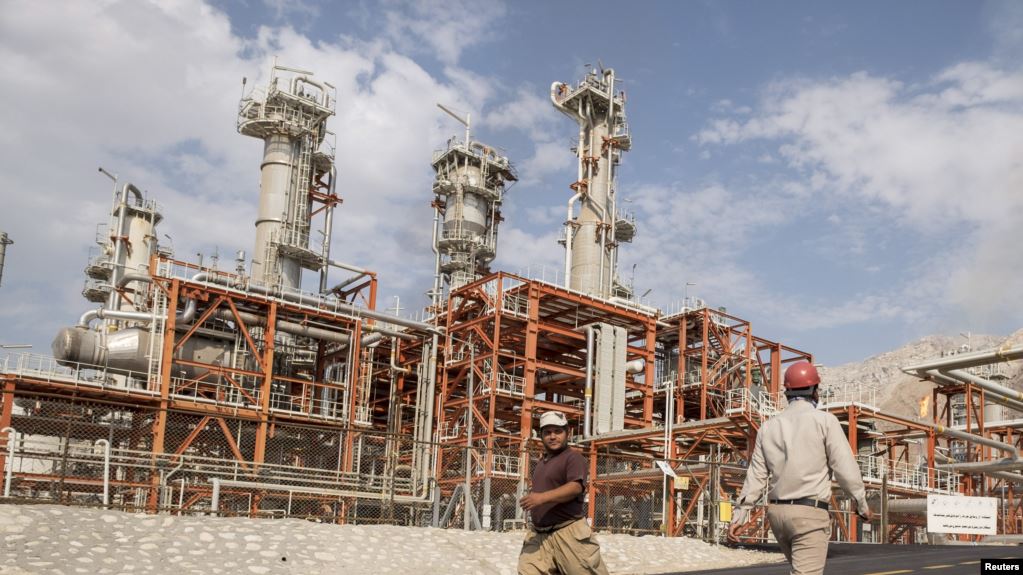
China pulled out of a $5 billion gas contract with Iran
The Iranian Oil Minister Bijan Zanganeh announced that the Chinese CNPC has withdrawn from the $5 billion contract to develop Phase 11 of the South Pars gas field, adding that Iranian Petro-Pars is now in charge of fully developing Phase 11.
According to Zanganeh, Iran was after attracting foreign investment for the development of this phase.
France’s Total and the Chinese CNPC inked a $4.8 billion contract in 2017 to develop this phase with a capacity of daily production reaching 56 billion cubic meters of gas. However, with the US pulling out of the nuclear deal, France’s Total pulled out of the contract, and now Zanganeh says that the Chinese company has also withdrawn from it.
Petro-Pars’ share of the project at the time of signing the contract was less than 20%, but it should now provide the entire $4.8 billion needed for completing the project.
The important point about the contract for developing Phase 11 of South Pars was the second stage, in which a 20,000-ton platform with several huge compressors was supposed to be built to stop the plunge in the production of gas in this phase and several other phases. The platform was going to be ready in 2022 – one year before a significant drop in the gas pressure of South Pars.
Only France’s Total and two other western companies are capable of constructing such platforms that are ten times bigger than the current platforms of South Pars.
In case these huge platforms are not installed in South Pars, there will be a severe plunge in the production of this field.
Radio Farda
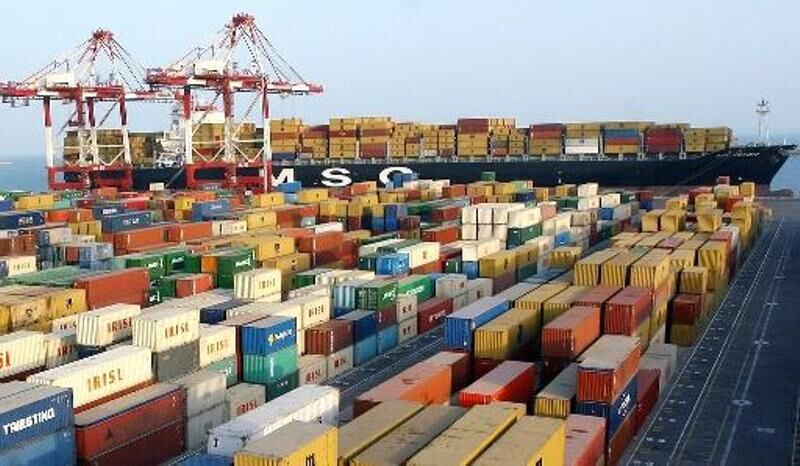
An increase in non-oil exports from Bushehr province
A Bushehr Custom official, Behrooz Gharehbeigi, announced that non-oil exports from Bushehr province had a 19% increase in the past six months, compared to the same period last year.
He added that in the past six months, 12,372,000 tons of goods worth $982 million were exported from the Custom Offices in Bushehr province.
According to Gharebeigi, the main exported goods from the province’s Custom Offices were petrochemical products, gas condensate, different marine products, vegetables, and herbs. He added that these products were exported to China, Emirates, South Korea, India, Qatar, Brazil, Iraq, Pakistan, and Turkey.
Gharebeigi said that in the past six months, more than 222,000 tons of goods worth $532 million were imported through Bushehr province’s Custom Offices, adding that the main imported goods included butter, tires, black tea, banana, cars, auto parts, sunflower seeds, and beans.
The goods were mainly imported from China, Emirates, New Zealand, India, the Philippines, Sri Lanka, South Korea, Italy, Taiwan, and France.
IRNA
